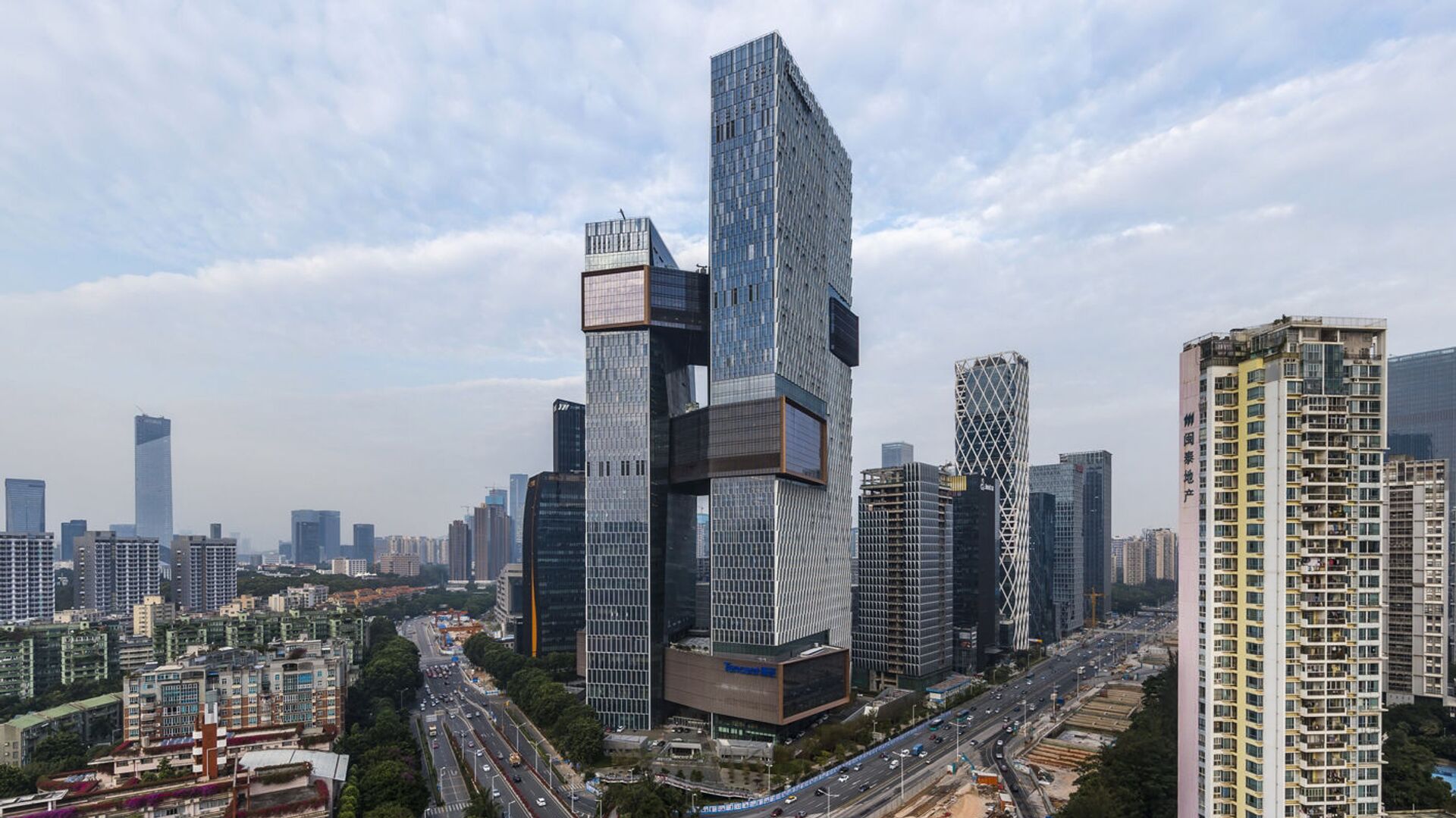Beijing Considering Easing Tech Giant Regulations After Lockdowns Stunt Economic Growth - Reports

© Tencent
Subscribe
Four months of rolling COVID-19 lockdowns have put a damper on China’s economic growth, forcing national leaders to look for new ways to buttress its private sector, including backing off recent attempts to step up regulation efforts.
The Cyberspace Administration of China (CAC), the country’s top tech regulator, is scheduled to host a symposium with several of the largest Chinese technology companies next week. The decision follows an announcement earlier on Friday by the Politburo of the Communist Party of China, the country’s top political leadership, that it would accelerate tax cuts and other means of economic support, as well as leverage new monetary policy tools to encourage investment.
“The pandemic has to be contained, the economy should be stabilized, and the development should ensure security,” the statement said, according to the South China Morning Post (SCMP). “We must insist on the policies of preventing both inbound infections and a domestic rebound of cases, and [adhere to] dynamic zero-Covid, doing our best to protect people’s lives and minimize its impact on the national economy and society.”
According to two anonymous sources who spoke with the SCMP, the regulator will assure business executives they won’t face surprise fines or rectifications for errors. Beijing is also considering distributing coupons through internet platforms to encourage consumption.
According to unnamed people “familiar with the matter” who spoke with the Wall Street Journal, regulators will also pause planned restrictions on the time young people can spend on mobile apps and are considering pushing some tech firms to offer the government a 1% equity stake, making it a part of the internal decision-making process - something it’s done with several of the biggest tech companies already, such as ByteDance and Weibo. According to the WSJ, it could pitch the idea to Tencent and Meituan as well.
Some of the companies reportedly invited to the meeting include ByteDance, which owns Tiktok; Alibaba Group, which owns AliExpress and AliPay; Tencent, which owns WeChat and QQ; and Meituan, which offers a massive delivery service for food, consumer products, and retail services.
The CAC has stepped up its regulation of the Chinese tech sector in recent years in a bid to improve ease and safety of use of their products and to halt certain monopolistic practices, such as creating exclusive families of apps that cannot work with those made by other companies. The most recent changes were handed down earlier this month, with the CAC announcing on-site inspections of the facilities of certain public-facing websites, platforms, and products and a clamping down on product and content recommendation algorithms that disseminate “fake news,” according to Jing Daily.
At a legislative meeting in early March, Premier Li Keqiang announced a downward-revised economic growth rate for 2022, projecting a modest 5.5% increase in gross domestic product. According to prior economic planning, a growth rate of more than 6% for 2022 was expected late last year - before the Omicron variant of COVID-19 hit China, triggering the country’s worst outbreak since the Hubei outbreak in 2019-2020 that kicked off the pandemic.
At the Friday Politburo meeting, CPC leadership said they expected to still be able to meet the 5.5% goal.
The government’s “zero Covid” approach to outbreaks has kept the country from experiencing the kind of uncontrolled sickness and associated mass death seen in Western countries like the United States, but has also created headaches for business as ports, airports, railways, and shops repeatedly close amid attempts to find, isolate and treat all COVID-19 cases.
With prior variants of the virus, such lockdowns have been very successful, with the country recording just two COVID-19-related deaths last year, but with the ultra-transmissive Omicron variant and its successive sub-variants, detection is much harder and a high proportion of contagious cases show no symptoms, frustrating attempts to halt the spread.
